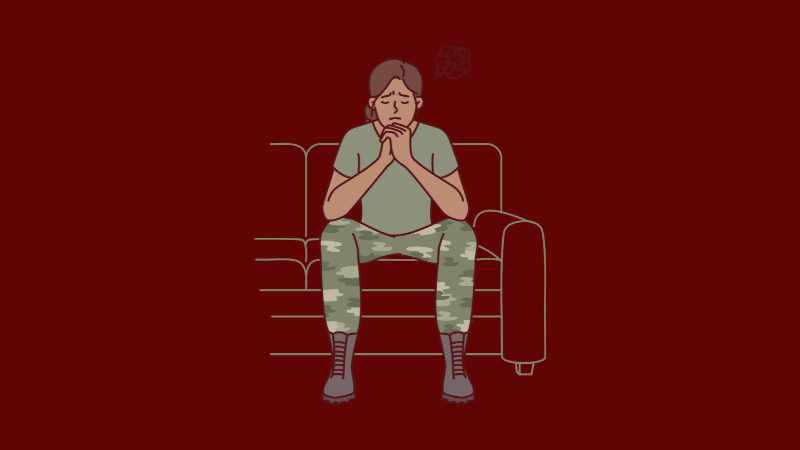Table of Contents
Affiliate link notice: As an affiliate of BetterHelp and other third-party vendors, We will receive compensation if you make a purchase using the links provided on this page. For more information, visit our disclosure page.
Psychotherapy, also known as talk therapy, refers to a form of treatment that licensed mental health professionals use to treat various conditions such as depression, anxiety, and PTSD. These are evidenced-based approaches and can be highly effective if used correctly.
In this article, we’ll look at 11 common types of psychotherapy in use today. While we hope you learn something here today, it’s always best to talk with your therapist about the approach best-suited for you and your needs.
What Are The Benefits of Psychotherapy?
Psychotherapy helps people with mental disorders to:
- Understand how their behaviors, emotions, and beliefs contribute to their illness, as well as how to change them;
- Identify stressors and life events — like a chronic illness, a sudden death, or a divorce — that worsen their illness, and how to cope in healthy ways;
- Regain a sense of control and increase their quality of life;
- Learn how to solve problems and to develop healthy coping skills

What Are The Different Types of Psychotherapy?
In this next section, we’ll talk about the various types of psychotherapy providers use. This is not an exhaustive list, but it’s a good place to start!
Cognitive Behavioral Therapy?
Cognitive behavioral therapy (CBT) is a specific therapy that treats mental health disorders like depression, anxiety, and others. It is founded on the belief that distorted thinking patterns lead to negative emotions and behaviors, so CBT works to change those thinking patterns.
Therapy involves identifying and correcting problematic behaviors while learning to cope with uncertain situations. CBT can be effective for mental health disorders, but a stigma is associated with it, making it tough for some people to go.
Rational Emotive Therapy
Rational emotive therapy (RET) is a type of behavior therapy that strives to change a person’s behavior and thinking by changing how they perceive the world around them. It is often used to address issues of depression, anxiety, trauma, and obsessive-compulsive disorder, among other illnesses.
Dialectical Behavioral Therapy
Dialectical Behavioral Therapy (DBT) was designed to help people with borderline personality disorder (BPD), including people with co-occurring disorders. This treatment approach employs various techniques, such as mindfulness meditation, to give patients the coping skills they need to manage intense emotions and feelings during difficult situations.
Behavioral Therapy
Behavioral therapy is an effective treatment option for various mental health conditions. However, it’s important to find a therapist that best fits your specific needs. While medication can be used as an adjunct treatment, behavioral therapy can complement medication use and contribute to increased symptom relief.
Desensitization Therapy
Desensitization therapy, also known as systematic desensitization, is a type of psychotherapy treatment in which patients gradually expose themselves to feared situations in order to overcome their anxiety. This treatment is used in various anxiety disorders, such as phobias, post-traumatic stress disorder, and obsessive-compulsive disorder.
Aversion Therapy
Aversion therapy, also known as aversion conditioning, is a way of learning to avoid things. It’s a method by which people learn to associate two unlikely things, such as the taste of “tabouli” with the taste of “poop.” It is a form of phobia modification in which a patient is rewarded for not responding to anxiety-provoking stimuli. Aversion therapy is used for conditions including phobias, anxiety disorders, and smoking cessation.
Humanistic Therapy
The humanistic therapy approach, also referred to as person-centered therapy, encourages a user-centered, client-centered approach that helps a client improve themselves with support from a therapist. This approach allows clients to explore issues at their own pace and promotes self-empowerment, encouraging the individual to take responsibility in working towards a solution to their problems.
Patients undergoing humanistic therapy are encouraged to discover their own instincts and strengths. The therapist’s role is to guide the patient to discover their internal qualities and values and help redefine them. The therapist helps the patient confront psychological obstacles, such as low self-esteem, lack of self-confidence, or depression. They encourage the patient to be assertive, optimistic, and self-confident. The therapist also helps the patient explore internal conflicts and conflicts within relationships.
Existential therapy
Existential therapy is a type of therapy that focuses more on your struggles than on solutions. The aim of the therapy is to help you deal with your life’s problems and to help you accept this and move past them.
Person-Centered Therapy
Person-centered therapy is one of the oldest types of psychotherapy still used today. It focuses on how a person’s thoughts, feelings, and behaviors impact their lives. It is primarily rooted in a person-centered philosophy, which asserts that it is the person, rather than their problems, who are the experts on their lives.
It is also known as Rogerian Therapy, after the man who pioneered it, Dr. Carl Rogers.
Gestalt Therapy
Gestalt therapy, developed by Fritz Perls, Ph.D., is a type of psychotherapy that emphasizes the importance of body awareness and the idea that our thoughts, emotions, perceptions, and actions are inextricably linked.
Psychodynamic Therapy
Psychodynamic therapy focuses on how past experiences influence our current emotions and behaviors. Psychodynamic therapy is a method that involves exploring a patient’s childhood through a series of interviews and paying special attention to the patient’s relationship with their parents. The therapist might ask a patient to recall childhood memories. They may probe about the patient’s relationship with their parents, such as their authority figures, as well as their reactions to those authority figures.
Psychodynamic therapy is aimed at treating mental and behavioral disorders such as depression, anxiety, and psychosis. The therapy is based on the idea that our life experiences have left emotional scars that inhibit our growth. Psychodynamic therapists believe that we have repressed emotions and traumas that impact our behavior and relationships with others.
Final Thoughts
While psychotherapy is not a silver bullet, research has shown again and again that it can be a remarkable tool in the hands of a competent clinician and a willing and engaged client. Hopefully, this overview of the different types of psychotherapy has provided you the information you need to start your journey.
You don’t need to know which therapy is right for you – that’s your therapist’s job. But the two of you can work together to identify your core issues and develop a treatment plan to overcome them.
It takes work, and sometimes it isn’t pleasant, but the majority of clients who give it their best shot report that it is well worth it.
If you suffer from a mental illness, drug addiction, or are just dealing with the various stressors that life throws at us, give psychotherapy a try. Your new life awaits!









